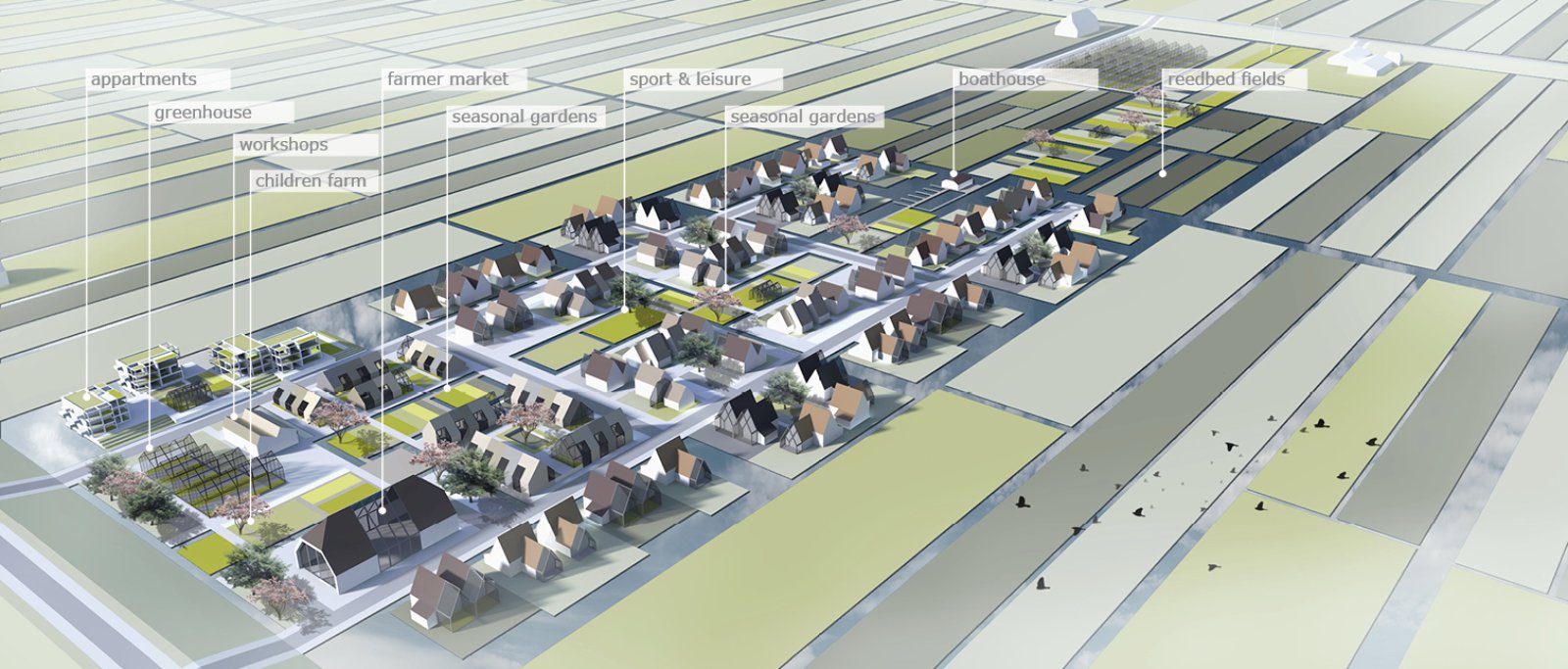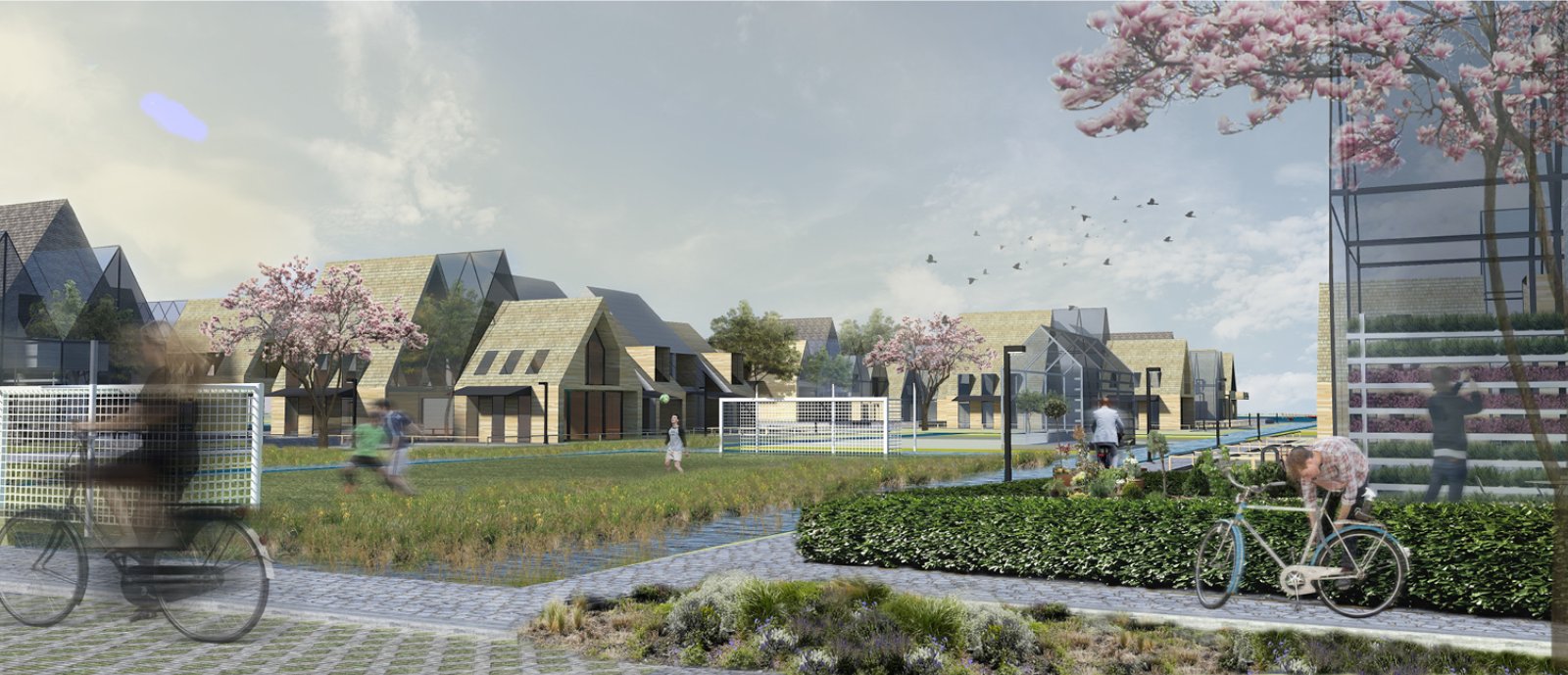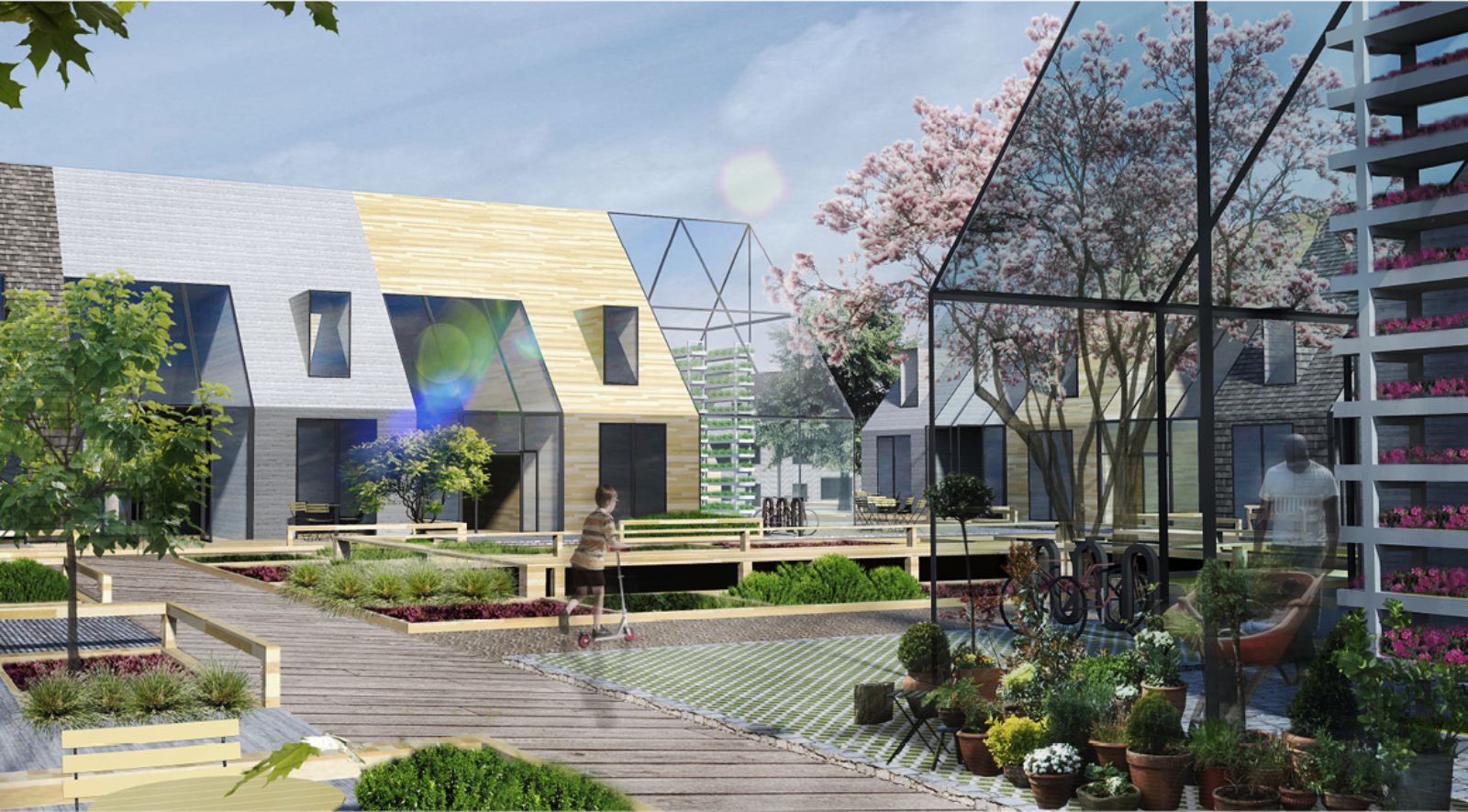
This project is an investigative project part of a series of LAB projects, developed on own initiative by Dutch Urban Solutions. LAB is a vehicle to question current changes in society, economy and environment through an integrated design approach of the built and unbuilt.

Resilient Suburbia – The Polder Model
A suburban living and bio-farm community developed around the concept of sustainable food production.

Ambition
Can we create a resilient approach to developing suburban communities in rural locations? With this question in mind we developed The Polder Model: a suburban living and bio-farm community developed around the concept of sustainable food production.

Our aim was to create a new model for suburban living communities where food production plays a central role in the community. By combining community food production with a commercial bio farm we aim to create a symbiosis between two competing forces in rural areas in the Netherlands.

Location
The Dutch Polder is a low-lying tract of land enclosed by dykes that forms an artificial hydrological entity, meaning it has no connection with outside water other than through manually operated devices.

Around 60% of the country consists of some type of polder landscape. With more than two million new homes planned over the next 15 years, there is increased pressure on developing new suburban communities within the existing polder landscape.

Approach
The polder model approach is a pragmatic recognition of pluriformity and aims to promote a culture of cooperation between suburban- and rural communities. Creating a new model for suburban living where food production plays a central role in the community.

In our proposal we combine two existing conventional farms to create a suburban living community that is in symbiosis with a commercial bio farm. Richard Breit | DUTCH urban solutions. Source by DUTCH urban solutions.

- Location: Dutch Polder, The Netherlands
- Architects: DUTCH urban solutions
- Year: 2016
- Images: Courtesy of Dutch urban solutions

